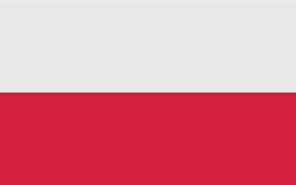
October 2022
Staying ahead of the curve on regulatory and tax compliance is a never-ending task for companies.
To help you keep on top of recent developments, here is our final quarterly Worldwide Wrap-Up of 2022, with some of the most recent changes that should be on your radar. We have summarised these topics briefly in this alert, however they will be covered in more detail along with other recent developments on our 5 October webinar.
 Australia - securities law reforms due to take effect
Australia - securities law reforms due to take effect
Reforms to securities rules, aiming to simplify the regulation of employee share schemes, take effect on 1 October. A key change is the creation of a distinction between free and contributory plans (i.e. plans which require employees to make a payment). Offers under free share plans (whether offered by listed or unlisted companies), require no prescribed form of disclosure, so long as the offer states that it is made under the new rules. Contributory share plans must comply with additional restrictions and disclosure obligations. In addition, for unlisted companies, a contributory plan must comply with a monetary cap, the base limit being AUD 30,000 per employee in any 12-month period. Where a company has listed, or is due to list, the three month listing requirement will no longer apply. For both listed and unlisted companies, the requirement to file a Notice of Reliance with ASIC (the regulator) is revoked.
Tapestry comment
This is the second overhaul of the ESS regulations in less than 10 years and the reforms have been under consideration for some time. Although the changes are helpful (in particular the lighter regulatory touch that now applies to offers of free shares), the attitude still seems to be focussed too much on protecting employees and not enough on encouraging employee ownership. For offers where a contribution is required (which is fairly standard in all-employee plans), the disclosure requirements are detailed, especially for unlisted companies. With the addition of a new penalty regime, which includes the risk of criminal liability for the company and directors for certain misleading or deceptive statements/omissions, this could be seen as a lost opportunity to be bolder in promoting employee share ownership in Australia.

Canada - Quebec introduces tougher French language rules
Quebec has recently strengthened its French language law (the new rules took effect on 1 June 2022). Under the new rules, any document that is classified as a “contract of adhesion” (i.e. contracts where there is limited or no negotiation between the parties) and that are considered to form part of an employee’s “terms and conditions of employment”, will generally have to be made available in French. In a share plans context, the new rules are likely to apply to documents which are generally presented to the employee on a “take it or leave it” basis.
In addition, from 1 June 2023, if an employee is not provided with French language versions of the documents, there is a risk that the documents can be voided. Obtaining consent from the participants to receive the documents in English would not comply with the new French language law.
Tapestry comment
Previously, many companies have managed to avoid the French language rules by getting the employees to consent to using the English language only. It looks like this will no longer be acceptable, as there is a risk that a disgruntled employee may take action to assert their language rights. However, local counsel cautions that it is still too early to assess the practical implications of the language law changes and it remains to be seen how strongly the new rules will be enforced in practice.
 Ireland - Employee tax compliance notification
Ireland - Employee tax compliance notification
As noted in our August alert (here) the Irish Revenue recently sent an Employer Notice to employers who have indicated that they operate unapproved (i.e. not tax-qualified) share plans, expressing their concern that employees may not be fully aware of their tax obligations where they are engaged in a share-based remuneration scheme(s). For example, where an employee has exercised, assigned or released share options and/or disposed of shares, it is the employee who is responsible for reporting and paying any taxes due.
The Irish Revenue requested that employers circulate the information provided in the Employer Notice to all employees to inform them of their tax obligations
Tapestry comment
This intervention by the Irish Revenue illustrates the importance of employers and employees being aware of and adhering to their obligations under Irish tax law in respect of share awards, and in particular, share options. Companies should make sure they have now circulated the requested information.
 Poland - not another securities filing!
Poland - not another securities filing!
During our last Worldwide Wrap up (here), we were pleased to report confirmation from the Polish Financial Supervision Authority (KNF) that the existing filing required following the allocation of securities under an employee share plan did not apply to options, provided they qualify as "options" for the purposes of Polish law.
Unfortunately, the KNF has since added a new filing obligation. Where a company is relying on an EUPR exemption for an offer of shares to employees in Poland, the company may have to provide an information memorandum or an information document to employees. From 1 August, a strict interpretation of the new law is that the company must notify the KNF at least seven days prior to distributing this information document / memorandum to employees. Our counsel is currently querying and challenging the scope of the new rules and their applicability if using the employee exemption. The KNF has confirmed that they are reviewing and clarifying their internal policy, as they are aware it is unclear. We expect further clarification in due course. The filing does not apply to past offers.
Tapestry comment
The addition of new securities law filing requirements is always disappointing, and the KNF appears to be increasingly interested in share plans activity by companies. Whilst we await an update on the scope of the new rules, our counsel has advised that making the new filing is the cautious approach for any company relying on the employee exemption and issuing an information document.
 Russia - new cross-border data transfer rules
Russia - new cross-border data transfer rules
New, stricter, rules on cross-border transfers of personal data came into force on 1 September 2022. Where a company makes cross-border data transfers, it must file a notification to the Russian regulator (Roskomnadzor) before 1 March 2023. After that date, the transfer of personal data to 'adequate' countries will require a notification to Roskomnadzor. Transfers to 'inadequate' countries will require the permission of Roskomnadzor.
Roskomnadzor will determine which countries are deemed 'adequate', but it is currently obliged to include member states of Convention 108 (this includes the EU and UK, although not the US).
Tapestry comment
While the ongoing war in Ukraine occupies most of our discussions with clients on share plan offerings in Russia, companies need to ensure that their data protection compliance team is aware of the tightening of the data protection transfer rules and the additional reporting obligations.
 UK
UK
The recent announcement of the "mini-budget" has sparked much discussion and market volatility. We will discuss the proposed changes and how they are relevant to share plans, including the current status of updates regarding changing tax and social security rates, the increased tax-qualified CSOP (Company Share Option Plan) limit from £30,000 to £60,000 and the relaxation around the classes of shares which can be used.
Tapestry comment
Aside from the market turmoil that has unfolded since the announcements, there is some positive news for share plans. Join our webinar to hear our views on the “mini-budget”.
 Global tax rates
Global tax rates
Compliance is key! Remember to be ahead of the game with global reporting deadlines. Coming in the next few days, weeks and months:
- China SAFE Q3 filing - 10 October
- Saudi Arabia - quarterly filing to CMA - 31 October
- Philippines - annual filing to SEC - 10 January
- Thailand - report (options) to SEC - 15/17 January
Tapestry comment
If you need this information for other jurisdictions not shown above, or if you need any assistance with any global filings, please do get in touch with us.
 Global tax and social security
Global tax and social security
We will cover any tax changes and announcements since our WWWup in July, including:
- Cambodia - contributions under the new pension system, the National Social Security Fund (NSSF), will begin on 1 October 2022.
- Mauritius - new tax rates released end of July but apply from 1 July. A new tax band of 12.5% has been added to the existing bands of 10% and 15%.
- Poland - Tax rates are progressive, from 12% to 32%. The tax rate in the first tax bracket was reduced from 17% to 12% from 1 July 2022.
- UK - the 1.25% increase in NICs (social security) reversed from 6 November. Proposed changes to income tax: reduction in basic rate from 20% to 19%.
Tapestry comment
You may think that tax-rate and NI changes are limited to the first couple of months at the beginning of the calendar year but, particularly due to political and economic changes, many countries have implemented changes mid tax year. This wrap-up will cover a few of these updates.
If you have any questions, or would like to discuss any element of legal and tax compliance for your global incentive plans, do get in touch - we would be delighted to help!
Chris Fallon, Sarah Bruce and Sonia Taylor


